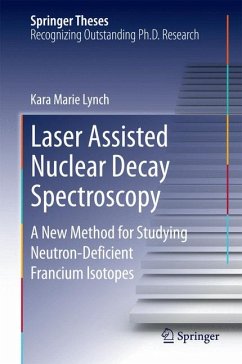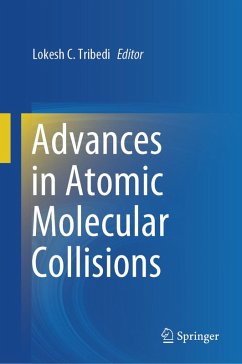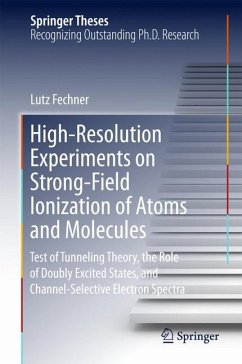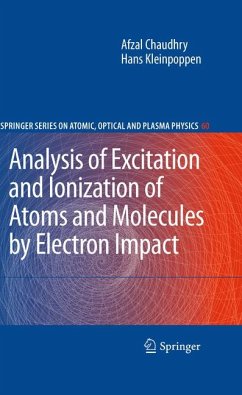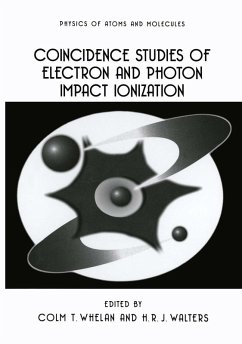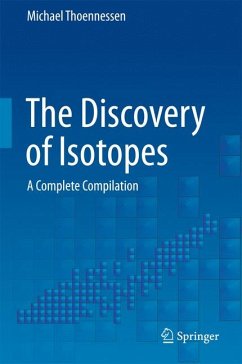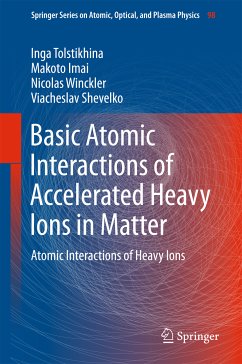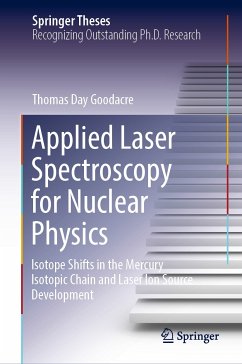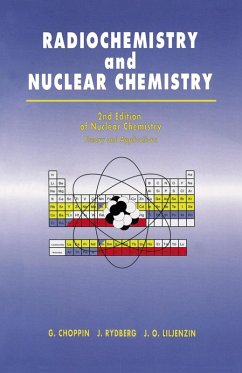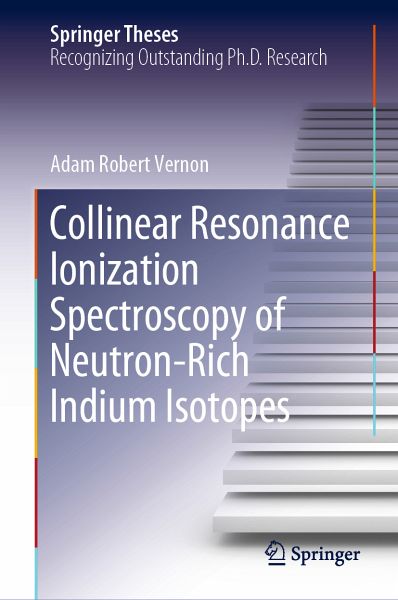
Collinear Resonance Ionization Spectroscopy of Neutron-Rich Indium Isotopes (eBook, PDF)
Versandkostenfrei!
Sofort per Download lieferbar
72,95 €
inkl. MwSt.
Weitere Ausgaben:

PAYBACK Punkte
36 °P sammeln!
This thesis describes the application of the collinear resonance laser spectroscopy to sensitively measure the electromagnetic nuclear observables of the neutron-rich indium isotopes 115-131In. This entailed a systematic study of the efficiency of resonant ionization schemes to extract the hyperfine structure of the isotopes, the atomic charge exchange process and benchmarking of modern atomic calculations with a laser ablation ion source.This allowed determination of the root-mean-square nuclear charge radii, nuclear magnetic dipole moments, nuclear electric quadrupole moments and nuclear spi...
This thesis describes the application of the collinear resonance laser spectroscopy to sensitively measure the electromagnetic nuclear observables of the neutron-rich indium isotopes 115-131In. This entailed a systematic study of the efficiency of resonant ionization schemes to extract the hyperfine structure of the isotopes, the atomic charge exchange process and benchmarking of modern atomic calculations with a laser ablation ion source.
This allowed determination of the root-mean-square nuclear charge radii, nuclear magnetic dipole moments, nuclear electric quadrupole moments and nuclear spins of the 113-131In isotopes with high accuracy.
With a proton hole in the Z = 50 nuclear shell closure of tin and several nuclear isomer states, these measurements of the indium (Z = 49) isotope chain provided an efficient probe of the evolution of nuclear structure properties towards and at the doubly-magic nuclear shell closure of 132Sn (N = 82) - revealing unpredicted changes.
This allowed determination of the root-mean-square nuclear charge radii, nuclear magnetic dipole moments, nuclear electric quadrupole moments and nuclear spins of the 113-131In isotopes with high accuracy.
With a proton hole in the Z = 50 nuclear shell closure of tin and several nuclear isomer states, these measurements of the indium (Z = 49) isotope chain provided an efficient probe of the evolution of nuclear structure properties towards and at the doubly-magic nuclear shell closure of 132Sn (N = 82) - revealing unpredicted changes.
Dieser Download kann aus rechtlichen Gründen nur mit Rechnungsadresse in A, B, BG, CY, CZ, D, DK, EW, E, FIN, F, GR, HR, H, IRL, I, LT, L, LR, M, NL, PL, P, R, S, SLO, SK ausgeliefert werden.



